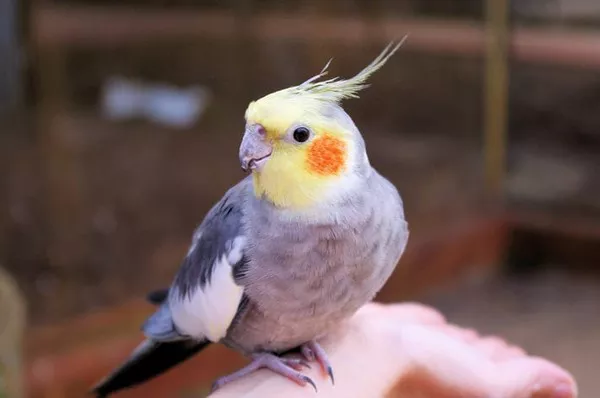Introduction to Labradoodles
Labradoodles, a crossbreed between a Labrador Retriever and a Poodle, have gained immense popularity in recent years for their friendly demeanor, intelligence, and hypoallergenic coat. Originating in Australia in the late 1980s, Labradoodles were initially bred to create a guide dog suitable for people with allergies. Since then, they have become cherished companions in households worldwide.
Labradoodles inherit traits from both parent breeds, resulting in a unique combination of characteristics. They are known for their gentle disposition, loyalty, and playful nature, making them excellent family pets and therapy dogs. With their versatile personalities, Labradoodles thrive in various environments and are adaptable to different lifestyles.
Physical Activity Preferences
Labradoodles are energetic and require regular exercise to maintain their physical and mental well-being. Daily walks, runs, or playtime in dog parks are essential to fulfill their need for physical activity. Engaging in outdoor activities not only helps them burn off excess energy but also strengthens the bond between the dog and its owner.
Due to their retriever lineage, Labradoodles often enjoy games of fetch and swimming. These activities not only provide excellent physical exercise but also stimulate their natural instincts. Owners should ensure that their Labradoodle receives adequate exercise to prevent boredom and potential behavioral issues.
Mental Stimulation
In addition to physical exercise, Labradoodles thrive on mental stimulation. As highly intelligent dogs, they require activities that challenge their minds and prevent boredom. Puzzle toys, interactive games, and obedience training are effective ways to keep Labradoodles mentally engaged.
Introducing new toys or rotating existing ones can prevent monotony and keep the dog’s interest piqued. Incorporating training sessions into daily routines not only provides mental stimulation but also strengthens the bond between the owner and their Labradoodle. Mental stimulation is essential for preventing destructive behaviors and promoting overall well-being.
Social Interaction
Labradoodles are social animals that enjoy the company of humans and other dogs. They thrive in environments where they can interact with others and receive attention and affection. Regular socialization from an early age is crucial to ensure that Labradoodles develop into well-adjusted and friendly companions.
Visits to dog parks, obedience classes, or playdates with other dogs allow Labradoodles to socialize and build positive relationships. Additionally, involving them in family activities and outings helps reinforce their sense of belonging and strengthens the bond with their human family members.
Affection and Companionship
Labradoodles are known for their affectionate nature and desire to be close to their human companions. They form strong bonds with their families and enjoy spending quality time together. Whether it’s cuddling on the couch or accompanying their owners on outdoor adventures, Labradoodles thrive on companionship and affection.
Providing ample opportunities for physical contact and positive reinforcement strengthens the bond between the Labradoodle and its owner. Regular affectionate gestures, such as petting, grooming, and verbal praise, contribute to a happy and well-adjusted dog.
Training and Learning
Labradoodles are highly trainable and eager to please, making them adept learners. They excel in obedience training and enjoy the mental stimulation that comes with learning new commands and tricks. Consistent, positive reinforcement-based training methods yield the best results with Labradoodles.
Using rewards such as treats, praise, and playtime motivates them to learn and reinforces desired behaviors. Training sessions should be short, engaging, and consistent to maintain the Labradoodle’s focus and interest. With patience, consistency, and positive reinforcement, owners can unlock their Labradoodle’s full potential and enjoy a well-behaved companion.
Diet and Treats
A balanced diet is essential for maintaining the health and vitality of Labradoodles. High-quality dog food that meets their nutritional needs is recommended to support their active lifestyle. Owners should consult with a veterinarian to determine the appropriate diet based on their Labradoodle’s age, size, and activity level.
In addition to regular meals, healthy treats can be used as rewards during training or as occasional snacks. Opting for natural treats made from quality ingredients ensures that Labradoodles receive nutritious rewards without unnecessary additives or fillers. It’s important to monitor their treat intake to prevent overfeeding and maintain a healthy weight.
Grooming and Care
Labradoodles have a unique coat that requires regular grooming to keep it clean and free of mats. Brushing several times a week helps prevent tangles and mats from forming, especially in curly or wavy-coated Labradoodles. Bathing should be done as needed, using a mild dog shampoo to avoid skin irritation.
In addition to coat care, attention should be given to dental hygiene, nail trimming, and ear cleaning to maintain overall health and well-being. Regular veterinary check-ups are essential to monitor the Labradoodle’s health and address any potential issues promptly.
Health and Wellness
While Labradoodles are generally healthy dogs, they may be prone to certain inherited health conditions common in their parent breeds. These may include hip dysplasia, progressive retinal atrophy, and certain skin conditions. Regular veterinary care, proper nutrition, and exercise are crucial for maintaining their long-term health.
Early detection and intervention are key to managing health issues effectively. Owners should be vigilant for any signs of discomfort or changes in behavior and consult with a veterinarian if concerns arise. By prioritizing preventive care and addressing health issues promptly, owners can help ensure their Labradoodle leads a happy and healthy life.
Adaptability
One of the defining characteristics of Labradoodles is their adaptability to various living environments and family situations. Whether living in an apartment in the city or a spacious home in the suburbs, Labradoodles can thrive given adequate exercise, mental stimulation, and social interaction.
Their friendly and sociable nature makes them well-suited for families with children, singles, or seniors seeking companionship. Labradoodles are also popular choices for therapy and service work due to their gentle temperament and intelligence. With proper care and attention, Labradoodles can adapt to any lifestyle and bring joy and companionship to their owners.
In conclusion, Labradoodles are beloved companions known for their friendly demeanor, intelligence, and adaptability. Meeting their needs for exercise, mental stimulation, social interaction, and affection is essential for ensuring their happiness and well-being. By providing a loving and nurturing environment, owners can enjoy the companionship of a loyal and devoted Labradoodle for years to come.
Related Topics:

























